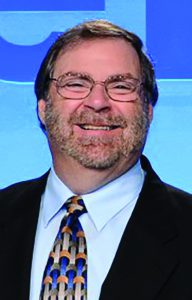
By Susan E. Campbell
Financial professionals helping clients plan for a comfortable retirement are accustomed to preparing for unknowns. But what happens when foundational systems like income taxes and health care hover on the verge of massive change?
“All the attention in the media is paid to national politics and legislation,” said Don Tenne, a registered representative and senior financial planner for Mass Mutual in Glens Falls. “But we spend our lives locally. How much passed legislation will affect my life, versus my property taxes, zoning or the traffic where I live?”
So he advises his clients, “Don’t get too caught up in tax reform or health care reform, because our lives are lived largely outside of the Washington bubble.”
While tax reform is important, the issue is not change, said Tenne, but how to make a financial plan and stay on course because times always change.
Tenne said that in the decade of the 1980s the stock market experienced about 15 percent growth, whereas in the 1940s there was about 2 percent growth, “yet people had the same goal of financial independence as any other decade.”
“If a client wants to retire and it is a decade like the 2000s with 0 percent growth, you still want financial stability for yourself and surviving spouse,” he said. “Managing money is something you can influence, but anyone who has lived through a bear market knows that some things can’t be controlled.”
Tenne said managing money is just a piece of financial planning, which also includes retirement, investment and estate planning, risk management and cash flow/net worth.
“Managing money is about ‘more.’ Financial planning is about ‘enough,’” he said. “If you are just managing money, you don’t know if you will have enough.”
Vital to any financial plan is implementation and for that, Tenne is the kind of “coach” who holds his clients accountable.
“How many join a gym and don’t go? That’s because no one keeps you accountable,” he said. “But hire a personal trainer and someone is waiting for you to show up to coach you. Many financial planners are like that.”
Planners are proactive whenever possible. But when uncertainties arise such that they cannot take the offensive, they try to react as quickly as possible to minimize potential risks, said Tenne.
“There are environmental changes—like there’s a tax system in place one day and it’s different the next. Or your 401(k) provider was switched and now you have completely different investment options for your contributions,” he said. “Like a pilot who sets a general course, I may make many course corrections along the way.”
A successful retirement plan will provide security against investment losses. But what about threats to retirement because of long-term health care needs?
“You may not purchase a long-term health insurance policy, but you will certainly need a long-term care plan,” Tenne said. “If you are going to live past retirement age, and most people do, a long-term care plan reduces or eliminates the financial threat to the surviving spouse after death. No one should, nor can they afford to, spend their retirement savings on long-term care.”
Accountability translates to real value for clients.
If he tells a client to contact an attorney about a will or trust, he will ask at their next review what the status is, and so on until the client makes the time to get the task done. Without such accountability, Tenne says, people get so caught up in the “noise of everyday life” that the task is pushed to the background.
“As long as they have a goal, I will help them make the changes to get there,” he said. “It’s about how to avoid problems when you can. And if you can’t, how do we deal with them financially?”
“You don’t need health care and tax reform to change your life,” said Tenne. “Our lives are constantly changing so the only answer is to be secure financially. If you’re on track, there is no need to worry.”
Tenne travels around the country instructing financial planners on how to run a financial planning business, relate to people, and hold clients accountable.
